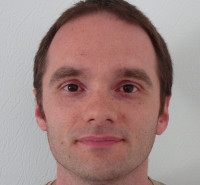Finance, Investment & Risk Management
Economic Loss & Disaster Risk Financing
Post-Doctoral Fellowships
United Kingdom
2011.05.31
Robustness in managing risk uncertainty
Dr. Anders Sandberg thinks our brain’s biology is partially at fault here. We have not evolved to be good at this kind of analysis, so our software is buggy, our plans imperfect and our risk models regularly deceived by cataclysmic chains of events. In many cases, there is a far greater likelihood of the model being wrong than of the risk occurring. In order to better deal with this sobering fact and help decision- and policy-makers use more robust risk scenarios, Dr. Sandberg is exploring how to construct “fault-tolerant” reasoning: models with built-in redundancy, using competing groups to improve robustness and reduce the impact of our biases. This may not stop the once-in-a-million events from happening, but at least we will be more ready for them.
My research focuses on improving methods of analysing risks under conditions of data scarcity and model uncertainty. In particular, to improving the robustness of reasoning about risks when model, calculation and argument errors are likely. Due to human cognitive biases and limitations on rationality such reasoning is often erroneous, leading to bad decisions. However, methods from reliability theory and ‘red team’ security gaming might be able to improve the robustness of risk assessment and reduce cognitive biases.
Why do Black Swans Live in Flocks?
To add or modify information on this page, please contact us at the following address: community.research@axa.com

Anders
SANDBERG
Institution
University of Oxford
Country
United Kingdom
Nationality
Swedish
Related articles
Finance, Investment & Risk Management
Societal Challenges
Microfinance & Financial Inclusion
Emerging Market
Inequality & Poverty
Joint Research Initiative
China
2021.04.19
Understanding the Financial Lives of Low Income Households in China
Leveraging financial diaries research methodology, this joint initiative aims to provide actionable insights about the financial lives of low-income households... Read more

Xiugen
MO
Chinese Academy of Financial Inclusion
Finance, Investment & Risk Management
Pandemics & Infectious Diseases
Economics & Global Development
Covid-19
Financial Markets, Modelling & Pricing
Economic Loss & Disaster Risk Financing
Insurance & Risk Management
AXA Award
France
2020.08.31
An Extreme Value Model For the Analysis of the COVID-19 Pandemic and Its Impact, and the Mitigation of Future Related Crises
The second strand of work will harness the vast wealth of functional data at our disposal to construct estimators for... Read more

Gilles
STUPFLER
